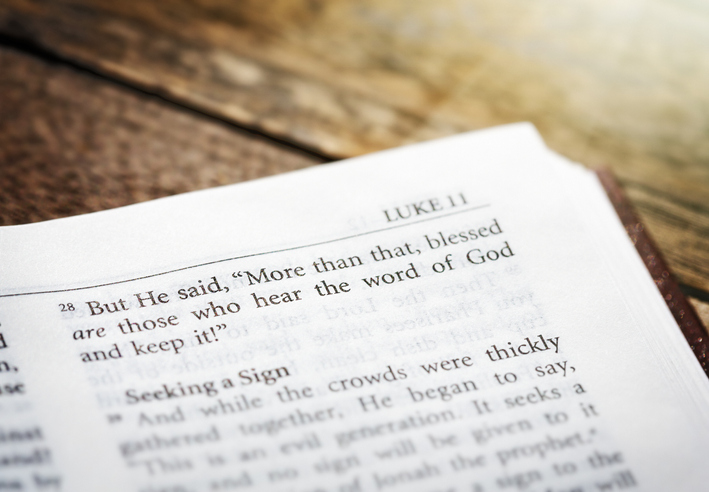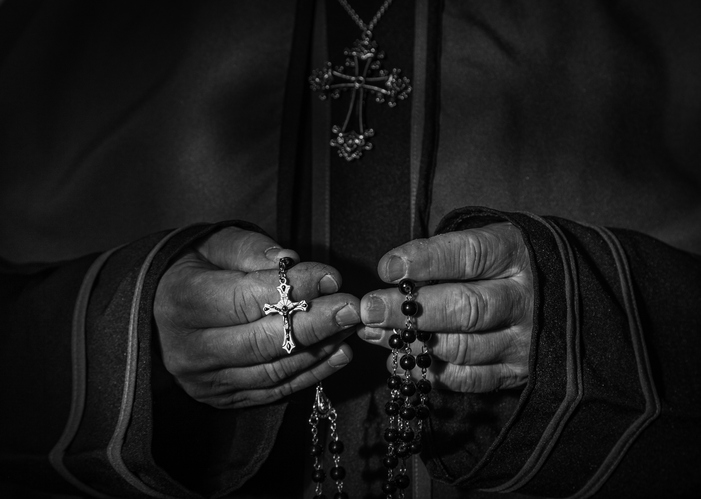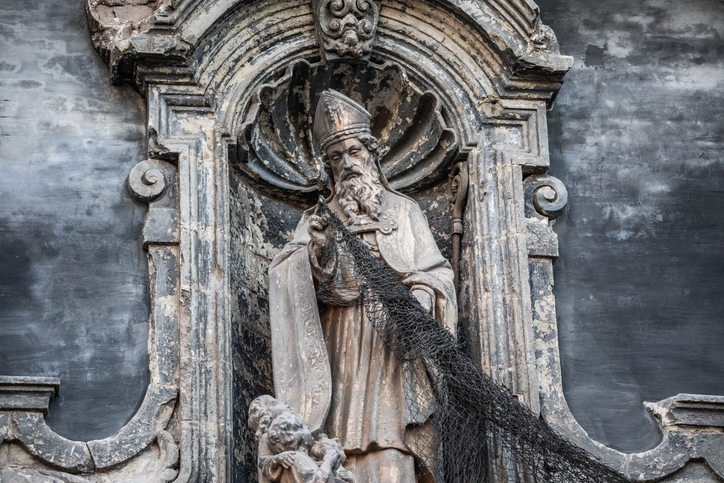Have you ever had the little voice in your head tell you it’s time to change a certain situation, yet you hesitate or are too busy to do anything about it? Then, the next time something similar occurs you find yourself, again, talking and thinking more about what’s going on but still not getting to the root of the issue? Fast forward a few months (or years) and hmmm, you’ve made no changes!
Today’s readings bring this to mind for me. The reading from the Acts of the Apostles speaks of a growing community, yet there are concerns (and individuals) falling through the cracks that affect the overall ministry to the people of faith. A the select few are selected and blessed to share the vision and work of the Apostles. During the Easter Vigil celebrations around the world, our newly elect and candidates are brought into the faith. We, as the universal Catholic community, the Church, are here to support these neophytes as they continue on their faith journey.
Our new members are encouraged to reach out to established folks in parish life to mentor or walk with them as they continue on this new path of life. It is not easy to take those first steps. The image of an infant learning to walk or someone first learning to ride a bike comes to mind. There are stumbles and falls, starts and stops as this new experience becomes something that can finally be done with confidence, without relying (too much) on a guiding hand or steadying presence.
We have to find our place in the process of the journey. A recent article really highlighted this for me. While on the trek there will be times when we question our purpose, as well as times of fear and doubt. The Gospel illustrates this today. The Apostles were afraid, even when they saw Jesus. He said to them, “It is I. Do not be afraid.” Still, the apostles wanted to act, to bring Jesus into the boat with them, to take control. The Lord knew this and He immediately got them to their destination.
The following prayer from Soren Kierkegaard really sums up that shared experience. He wrote, “O Lord, calm the waves of this heart: calm its tempest! Calm yourself, o my soul, so that the divine can act in you! Calm yourself, o my soul, so that God is able to repose in you, so that his peace may cover you!”
I believe the Lord is here, guiding us in each and every life situation. I have been given graces through Him in the sacraments that have helped me to prepare, be it through education, talent, skills, or life experiences, to be able to present to those with whom I interact, no matter the circumstance. During these times, I just need to get out of the way and have faith.
So wherever you may find yourself this day or the next, follow St. Boniface’s lead: “Let us stand fast in what is right, and prepare our souls for trial. Let us wait upon God’s strengthening aid and say to him: ‘O Lord, you have been our refuge in all generations.'” Amen.

Beth is part of the customer care team at Diocesan. She brings a unique depth of experience to the group due to her time spent in education, parish ministries, sales and the service industry over the last 25 yrs. She is a practicing spiritual director as well as a Secular Franciscan (OFS). Beth is quick to offer a laugh, a prayer or smile to all she comes in contact with. Reach her here bprice@diocesan.com.














